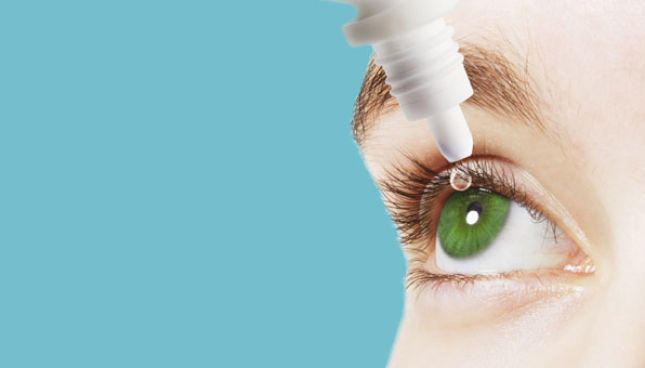Eye Center in Andalusia: Premier Services for Vision Treatment
Eye Center in Andalusia: Premier Services for Vision Treatment
Blog Article
Is Refractive Surgery Right for You? Aspects to Take Into Consideration for Better Eyecare
In the realm of eye care, the choice to undertake refractive surgical procedure is a weighty one that demands thoughtful consideration. From the intricacies of one's ocular health and wellness to the complexities of everyday practices and personal expectations, each aspect holds importance in the broader landscape of refractive surgery candidateship.
Eye Wellness Analysis
When thinking about refractive surgical treatment, an extensive eye health evaluation is crucial to analyze the suitability of the procedure for each and every person. neurologist andalusia. This examination includes a series of tests and exams performed by an eye treatment professional to establish the general health of the eyes, the presence of any underlying problems, and the stability of the refractive mistake
Throughout the assessment, numerous aspects are considered, such as the individual's medical history, current eye prescription, corneal thickness, student dimension, and tear movie top quality. These evaluations help to determine any type of contraindications to refractive surgery, such as corneal abnormalities, cataracts, or without treatment eye infections. In addition, the assessment helps to handle person expectations relating to the potential end results of the surgery based upon their special eye qualities.
Eventually, the eye wellness evaluation is crucial in making certain the security and performance of refractive surgical treatment, as it provides valuable understandings right into the individual's eye wellness condition and helps establish the most suitable treatment choices for attaining ideal aesthetic end results. (eye center andalusia)
Lifestyle Analysis
A complete lifestyle analysis is important in establishing the viability of refractive surgery for a person's aesthetic modification demands. Way of living factors such as occupation, pastimes, and everyday activities play a crucial duty in the decision-making process relating to refractive surgical treatment. Individuals with occupations that involve a high level of physical task or direct exposure to environmental elements may have different aesthetic requirements compared to those with less active desk jobs. Comprehending exactly how a person's way of living may affect their vision post-surgery is essential for handling expectations and making certain optimum end results.
Furthermore, way of living practices such as sporting activities participation, exterior activities, or even skin care routines can influence the healing procedure and general success of refractive surgery. Individuals that engage in get in touch with sporting activities may require to take extra preventative measures to shield their eyes throughout the recovery period. In addition, individuals with considerable sun direct exposure might call for additional post-operative care to stop problems. By performing a detailed way of life analysis, eye care specialists can customize their suggestions and treatment strategies to fulfill the unique needs of each patient, ultimately leading to boosted visual outcomes and satisfaction.
Assumption Placement

Clients require to comprehend that while numerous individuals accomplish 20/20 vision or far better following refractive surgery, some may still need glasses for specific tasks like analysis or driving at evening. Managing these expectations assists avoid dissatisfaction and frustration post-surgery, leading to a much browse around this site more positive overall experience for the person.
Danger Evaluation

Variables that might increase the threat of complications include age, specific hop over to here clinical problems like autoimmune conditions, unstable vision prescription, thin corneas, and unrealistic individual expectations. In addition, choosing a experienced and experienced surgeon, following pre and post-operative treatment directions faithfully, and disclosing any type of relevant medical history can assist mitigate threats.
To lessen the chance of difficulties, eye doctors carry out thorough pre-operative assessments to identify any kind of contraindications to surgery. They also discuss the possible threats and benefits with people during the examination process. By taking part in open communication and shared decision-making, both the eye doctor and the individual can collaborate to determine if refractive surgery is the ideal option based on specific risk accounts and preferred end results.
Assessment Relevance
Thinking about the essential function of informed decision-making in evaluating risks and possible problems in refractive surgical treatment, the assessment procedure holds substantial value in leading people towards optimum results. Throughout the examination, the ophthalmologist examines the patient's eye wellness, refractive errors, and total suitability for surgical treatment. This initial analysis is critical in figuring out one of the most appropriate treatment for each and every individual, thinking about factors such as corneal thickness, student dimension, and existing eye conditions.
Furthermore, the appointment functions as an opportunity for people to review their assumptions, issues, and any kind of questions they might have pertaining to the surgical treatment. Clear communication between the individual and the surgeon is important to ensure reasonable expectations and a thorough understanding of the possible threats and benefits included.
In addition, the examination permits the specialist to discuss the various surgical choices offered, their corresponding end results, go to my site and the post-operative care called for. This extensive conversation empowers people to make educated choices regarding their eye treatment, causing better complete satisfaction and outcomes post-surgery.
Verdict
In conclusion, people taking into consideration refractive surgical treatment should go through a detailed eye health assessment, evaluate their way of living routines, straighten their expectations with prospective outcomes, assess the associated dangers, and prioritize consultations with eye care professionals. These factors play a critical function in establishing the suitability of refractive surgery for every individual, ensuring optimum results and satisfaction with the treatment.
Patients considering refractive surgical treatment typically have high expectations relating to the end results, expecting ideal vision without the need for glasses or contact lenses. While refractive surgical procedure can substantially enhance vision and minimize dependence on visual aids, it is critical for patients to understand that outcomes may differ based on private aspects such as the degree of refractive error, corneal density, and overall eye wellness.
By involving in open communication and shared decision-making, both the client and the eye doctor can work together to establish if refractive surgical procedure is the best selection based on specific threat profiles and preferred outcomes.
Thinking about the essential function of informed decision-making in evaluating dangers and potential issues in refractive surgical procedure, the appointment procedure holds significant value in assisting people towards ideal end results. During the examination, the eye doctor examines the person's eye wellness, refractive errors, and overall viability for surgery.
Report this page